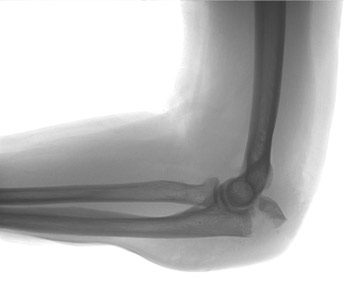
An analysis of health
Best Health stands behind Canada’s universal care, warts and all. And for good reason: Here is our analysis of how the health of Canadian women compares, in 11 key areas, to that of our American sisters. (We believe this is the first comparison of its kind that has ever been done.) Since our populations are so different-Canada has 33 million versus the U.S.’s 307 million-we’ve used percentages.

1. Breastfeeding
Canada
In Canada, 85 percent of mothers make an effort to breastfeed their new babies. By the time baby is six months old, 17 percent of Canadian moms are still exclusively breastfeeding.
United States
In the U.S., 73 percent of moms are breastfeeding right after giving birth. And just 10 percent of American moms are still breastfeeding by the time their baby is six months old.
The good news
The practice of breastfeeding is becoming more widespread in both countries.
Healthier: Canada

2. Cancer deaths
Canada
Cancer is the second most common cause of death for Canadian women, resulting in 28 percent of all female deaths.
United States
Cancer is the second leading cause of death, resulting in 21 percent of female deaths.
How rates compare
The three most common cancers are the same for women in both countries: breast, lung and colorectal. In an international study, Canadian women had a lower incidence rate of breast cancer (80.7 per 100,000 vs. 90.9 per 100,000 American women) and a slightly lower incidence rate of lung cancer (31.6 per 100,000 vs. 34.3 per 100,000). But we had a slightly higher incidence rate of colorectal cancer (29.4 per 100,000 vs. 28.3 per 100,000).
The difference in lung cancer could partly be explained by our lower smoking rate. Our lower exposure to vitamin D-producing UV radiation (due to our winters) might account for our higher incidence of colorectal cancer-but that’s not for certain. “There’s a lot that we still don’t know,” says Loraine Marrett, director of surveillance at Cancer Care Ontario.
Healthier: United States

3. Cardiovascular disease
Canada
Cardiovascular disease (CVD) is the leading cause of death (after cancer) in Canadian women, with 33 percent of all female deaths caused by CVD.
United States
It’s the leading cause of death for women in the United States. Thirty-seven percent of all female deaths in the U.S. can be blamed on CVD.
The good news
In both countries, the prevalence of CVD, which includes heart disease and stroke, is declining.
Healthier: Canada

4. Diabetes
Canada
In Canada, 7.1 percent of adult women have been diagnosed with diabetes.
United States
In the U.S., 7.8 percent of women have the disease.
The bad news
The numbers are growing. “Diabetes is on the rise in both countries,” says Dr. Doreen M. Rabi, population health investigator for the Alberta Heritage Foundation for Medical Research in Calgary.
Healthier: Canada

5. Fertility/birth rate
Canada
Our birth rate is 1.7 (the average number of children per woman). The infertility rate for women age 20 to 44 in our country is about seven to eight percent.
United States
On average, American women are having more babies than we are, with a birth rate of 2.1. The infertility rate for women age 20 to 44 is the same as ours.
Healthier: United States

6. Osteoporosis
Canada
Twenty-five percent of Canadian women over 50 have osteoporosis, lower than the worldwide rate of one in three.
United States
In the U.S., the disease affects 35 percent of postmenopausal women.
The bad news
It may be under-reported, so these numbers could, in fact, be much higher. “There’s a myth associated with osteoporosis that it’s a disease of older women,” says Tanya Long, education manager at Osteoporosis Canada.
Healthier: Canada

7. Overweight and obesity
Canada
Approximately 23 percent of Canadian women are obese. And another 30 percent are overweight, putting more than half of the women in this country on the wrong side of the scale.
United States
However, Americans outdo us, with a steady 35 percent of women considered obese, and another 26 percent overweight.
Healthier: Canada

8. Physical activity
Canada
Forty-nine percent of Canadian women are active or moderately active, taking part in the equivalent of a 30- to 60-minute walk daily, or a 60-minute exercise class at least three times a week.
United States
Fewer than 40 percent of American women get this much exercise.
Healthier: Canada

9. Prenatal care
Canada
Ninety-five percent of Canadian women initiate prenatal care in their first trimester.
United States
South of the border, only 83 percent of women do so-and that number is falling.
Healthier: Canada
Side note: A recent study published in the Canadian Medical Association Journal found that having a baby at home with a midwife was as safe as a hospital birth. The Society of Obstetricians and Gynaecologists of Canada encourages research into the safety of various birth settings, but it does not take a stand on home births. In comparison, in 2008, the American College of Obstetricians and Gynecologists reiterated its opposition to women choosing home births.

10. Smoking
Canada
In this country, 17 percent of women light up.
United States
Eighteen percent of American women smoke.
The good news
Numbers are declining in both Canada and the U.S.
Healthier: Canada

11. Stress
Canada
A Statistics Canada survey found that more than 29 percent of working women consider their day-to-day lives to be “quite a bit” or “extremely” stressful.
United States
The American Psychological Association reports that 35 percent of women say they are experiencing extreme stress in their lives.
Healthier: Canada
How satisfied are you with our healthcare system? Click through to vote in our poll and tell us what you think.
Related:
• Canada’s healthiest cities 2009
• Is Canada’s Food Guide good for you?
• Canada’s best medical care for women
